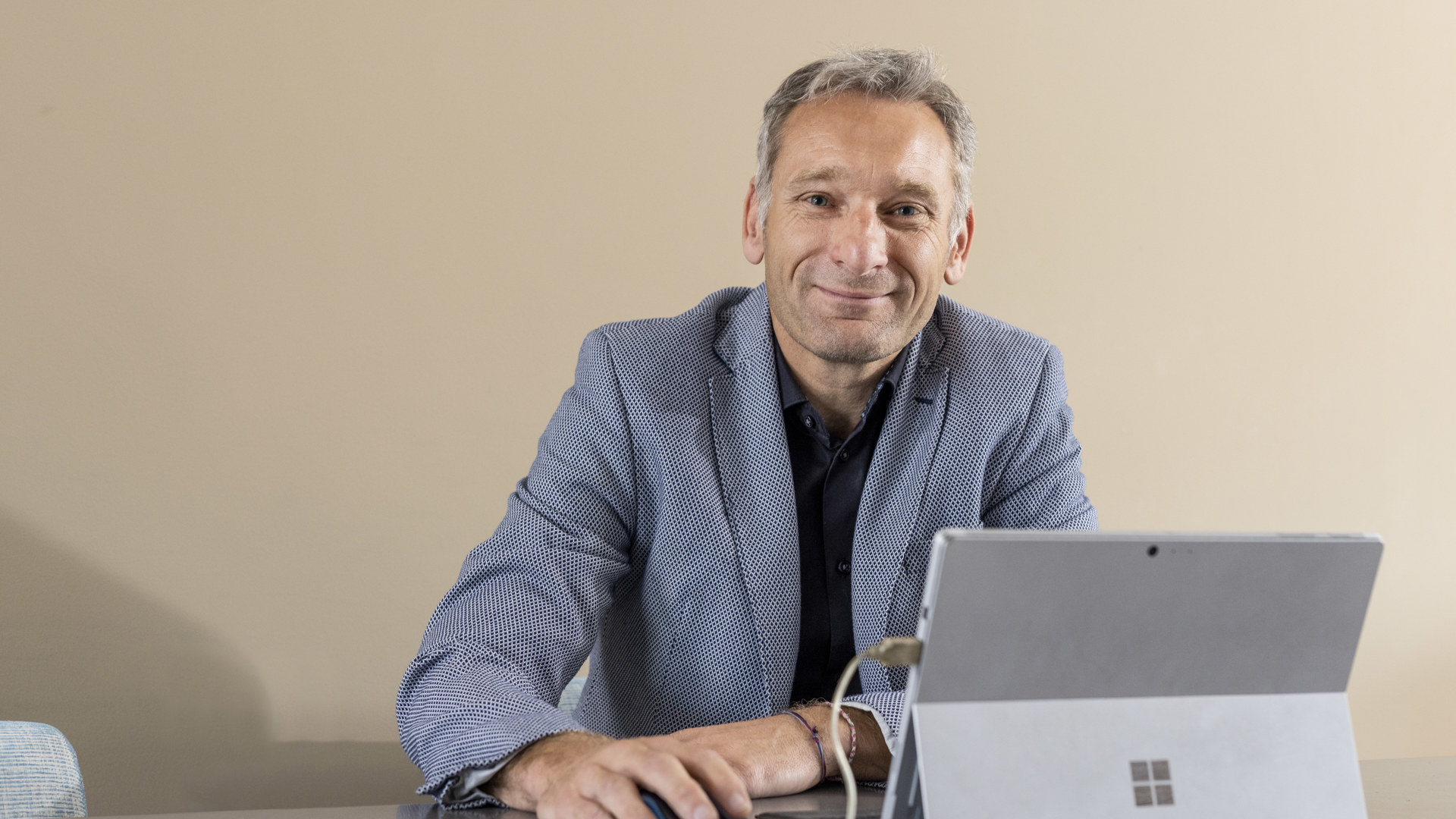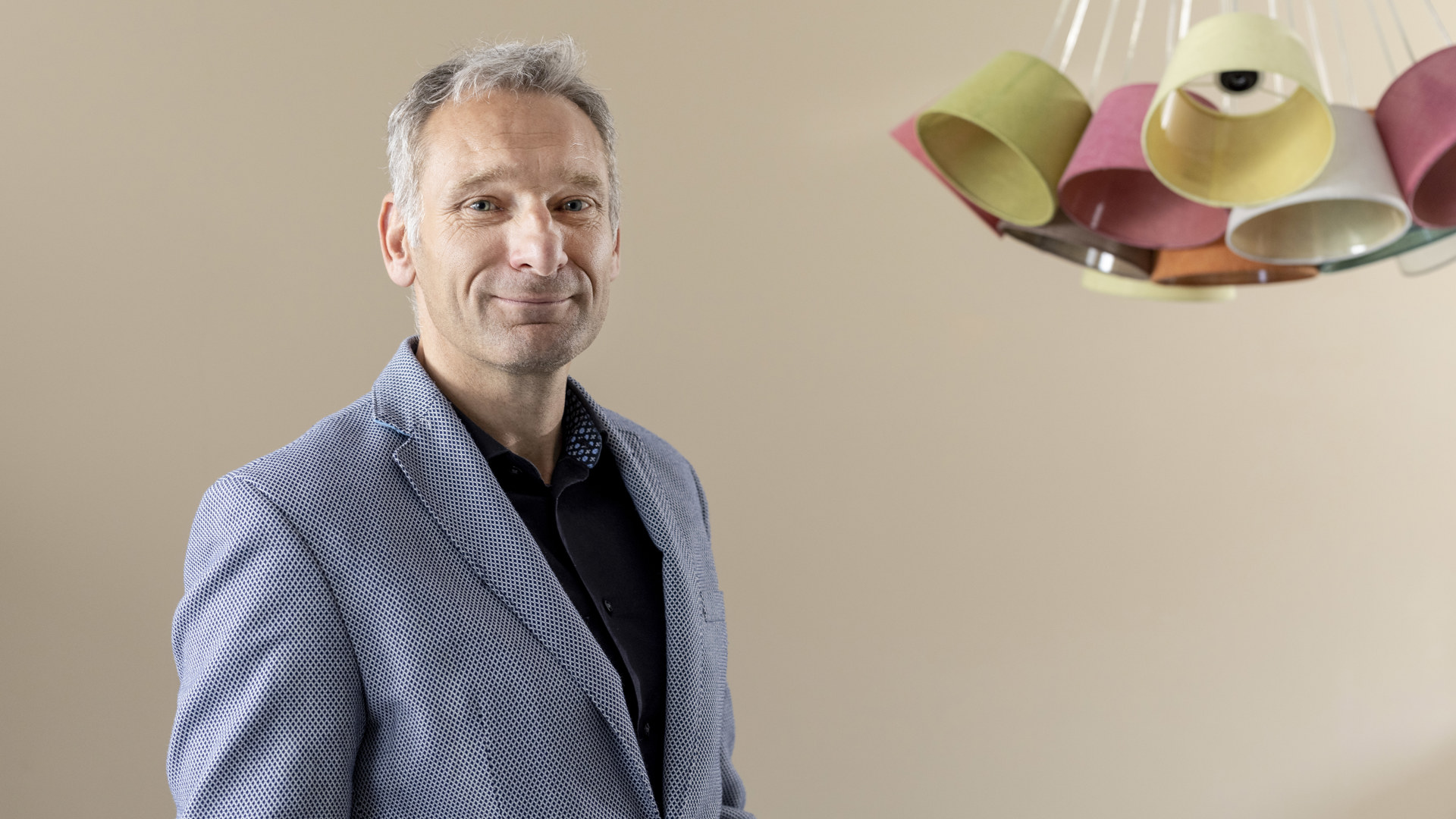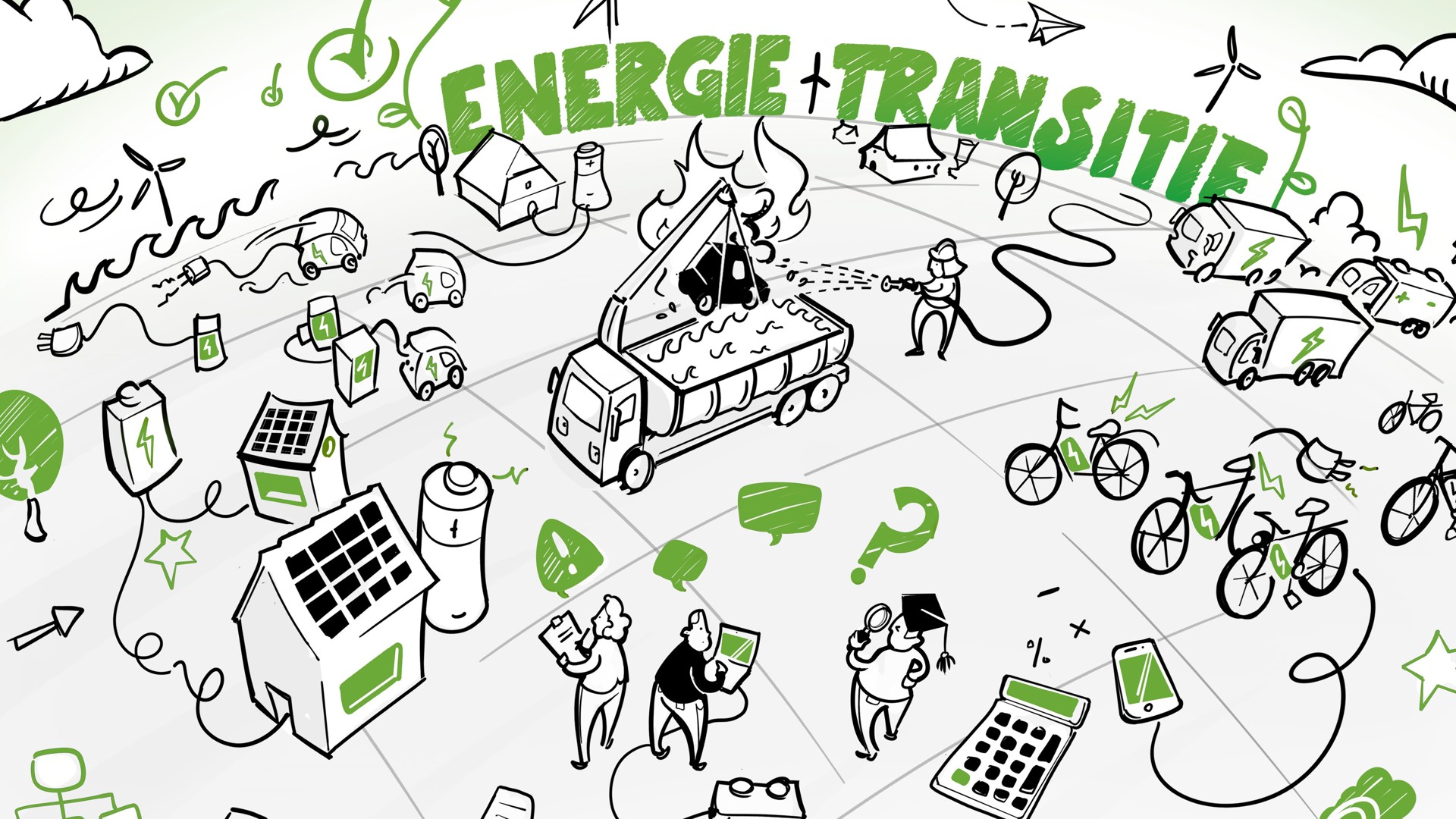
Nils Rosmuller is professor of Energy and Transport Safety at the Institute for Physical Safety (IFV). He is an expert at the intersection of the energy transition, safety and assistance. And he is busy. Rosmuller teaches, presents during webinars from his own IFV research and he is often asked to take part in a sounding board group or a supervisory committee. During the interview, it quickly becomes clear why. Rosmuller understands the art of explaining in plain language where the shoe pinches. And he does not hesitate to give his opinion. "Of course it's great that the government is spending an extra seven billion euros on the energy transition, but what part of that is spent on public safety?"
 The Institute for Physical Safety (IFV) supports the 25 security regions in our country in disaster relief and crisis management.
The Institute for Physical Safety (IFV) supports the 25 security regions in our country in disaster relief and crisis management.
Important pillars of the IFV are the four research groups (Fire Prevention, Fire Engineering, Crisis Management and Energy and Transport Safety), which form the link between research, education and practice.
The Energy and Transport Safety research group focuses on a safe energy transition, and on the safe transport of people and goods. The research group does this - in close collaboration with the other research groups, the security regions, knowledge institutes and sector organisations - through research, education, publications, meetings, webinars and presentations.
The IFV, which is located in Arnhem and Zoetermeer, employs more than 250 professionals.
"It sounds a bit anarchic, but I can do what I want. I am not hindered in my work by policy guidelines or anything else and I am allowed to give my opinion on developments in CO2 emissions, geothermal energy, wind energy, biomass and solar energy. In addition, I am involved in the safety of hydrogen, batteries/accumulators and sustainable building materials. That's great, because let me start by saying that no one is against accelerating the energy transition. Me neither, but we have to do that transition in a safe way."
"We try to be as visible as possible in the field, so that we can put our (safety) message in the spotlight. As an institute, we usually have insight into the consequences of accidents, but less into causes and even less into how often something happens. Incidentally, we are aware of the fact that we are in that final line of defence, but we are increasingly trying to draw attention to safety at an early stage (early line of defence). If a manufacturer takes safety aspects into account during the design of a product, it saves a lot of trouble afterwards. Take the electric car as an example. If the battery pack is the cause of a fire, a lot of water is needed to cool the car. But you actually want to get that water, which now mainly ricochets off the bonnet and the casing of the battery, to those battery cells, so that you cool effectively. The best thing is an internal extinguishing system, or rather: an inherently safe battery technology. That would save a lot of immersion containers and, above all, a lot of water."

"In fact, you can even install an extinguishing system in the battery, but then you have to want to. I often wonder why the safety aspect has penetrated some industries and not others? Incidentally, this does not only apply to the car industry, there are countless examples that show that more attention in the design process could have prevented a lot of misery afterwards."
"We only applaud this shift. It may sound a bit old-fashioned, but prevention is still better than cure. In addition, risks are getting closer and closer to the citizen. In the past, you had a large power plant on the outskirts of the city, with a big fence around it, a safety management system and an operator nearby. Now we are more or less our own energy company. We have solar panels on our roof, an electric car in front of the door, a powerwall in our house and sometimes we buy or sell the energy from or to the neighbours."
"They are mainly different. You can only partly compare the fire course of a fossil-powered car with that of an electric one. The temperature build-up is much slower with the latter, but the fire can maintain itself for hours or even days. That is really different from a fire in a 'normal' car that is extinguished within an hour. And look at a development like hydrogen. The use of hydrogen is not so new in industry, but it is relatively easily flammable and is now also much closer and perhaps soon in our homes. That poses very different risks than when you heat your house with gas. Incidentally, hydrogen does not lead to carbon monoxide poisoning, so that is an advantage."
"Nobody is against accelerating the energy transition, but we have to do it in a safe way!"
"People's behaviour, which I regularly call 'unconscious and incompetent'. The scary thing about this is that we, but also the fire brigade, insurers or the government, often have no insight into such behaviour. People can put together their own battery at home or store energy for later, but who says those people are competent? Imagine that someone stores all kinds of energy at home, sometimes in self-manufactured storage systems, and there is a fire. If the fire brigade comes and opens the meter cupboard to switch off the electricity, what happens? At that time, the fire brigade is not aware of that extra storage elsewhere in the house. All kinds of things are happening in homes and neighbourhoods. We just don't know what, because it's behind the front door and so it's out of our sight."
"I use the words unconsciously and incompetently. That says it all, right? Because do the home handymen realise how much energy is stored in such a battery? Do they understand the risks involved? Do they know, simply put, what happens when things go wrong? I don't mean that in a derogatory way either, but a large part of what goes wrong is because of that unconsciousness. People think it can't hurt to put an extra battery on their e-bike, but maybe that battery is damaged, without you seeing it? If you don't know something, you don't see it. This is also the case with risks. And that's why we're here, sometimes like a thorn in the side, to point out that safety and tell you that a battery can also have invisible damage and can be dangerous if you've dropped it. I think insurers have the same mission."

"I think the government should take the lead. The IFV is not a normative institute. And let's face it, everyone wants that energy transition. So do we, but if we want to do it quickly and well, we need more money and more attention to safety. If a few billion extra is spent on the energy transition, then surely we can also expect that policy documents have also considered safety around directional charging in inner cities or how to safely install solar parks and wind turbines on land and in the sea?"
"Good question. I think the government sometimes asks itself that too. It is really a very good thing that Economic Affairs and Climate are no longer under one minister. These are two completely different interests. The Minister for Climate Policy now has a very important role to play, but the Ministries of Infrastructure and Water Management and the Interior will also have to get to work. At the very least, they will have to create the frameworks for spatial, transport and building safety."
"Yes, integral always sounds so nice, but there are so many different facets to the energy transition that you can't leave it to one ministry. Spatial safety falls under Infrastructure and Water Management and the Ministry of the Interior is responsible for building safety. And then we haven't even talked about product safety yet."
"People can put together their own battery at home, but who says they are competent?"
"P.O. Box 51 doesn't seem so crazy to me in this case. We have to try to get behind that front door more. Just as happened with smoke detectors with the Fire Safe Living campaign. People are now aware of the proper functioning of smoke detectors and there will also be a legal obligation as of 1 July. I think we should deal with information about the energy transition in the same way. Citizens have electric bicycles, scooters, store energy themselves, but in the meantime they don't give a damn about safety. It is high time that we started worrying about that information. There are quite a few measures that we can take ourselves to reduce the risks of fire."
"Funnily enough, together with the fire brigade, we have made ten tips for charging at home. One of the tips is: charge when you are there yourself. I also have an e-bike and always remove the battery from my bike. I charge it inside, while reading the newspaper or watching television, so that I can pay attention to it with a slanted eye and at least be there. But that aside. I think this is a great task for the bicycle seller. He sells a nice (expensive) bicycle and is allowed to tell something about safety. I sometimes wonder if bicycle dealers themselves are aware of the dangers, but so many are burning down now that the safety aspect will slowly but surely sink in."
"I hope not, but I understand what you mean. The mechanism often works like this. The energy transition is developing and this is often done through trial by error. About three or four years ago I was in the news because of an increase in fires with solar panels. These fires have continued to increase and eventually insurers and the industry have entered into discussions with each other to arrive at a kind of standard, so that the building remains insurable if panels are installed on the roof. Nice, but that only happened after it has gone wrong perhaps far too often."

"It was only when the risk of buildings threatened to become uninsurable that the Ministry of Economic Affairs and Climate took the initiative to sit down with the two parties. So do they leave it? A little bit, but on the other hand, I also think it suits our country that our government does not immediately come up with very strict regulations and leaves it to the industry first."
"They are certainly rightly worried. If the risks remain under the radar, insurers cannot do anything with them. They, like us, have no view of that home tinkerer on the second floor behind. So yes, then I understand that they want more regulation. On the other hand, there are developments going on that we do have an overview of. Just think of the large-scale installation of PV panels, the development of neighbourhood batteries and the pilots around hydrogen. Insurers understand risks, know how it works, which mechanisms to use and which barriers you can build in. Moreover, they have figures and hard data. For example, when it comes to fires with e-bikes. They know where and how often it burns, what the cause is, and how high the damage is, but when we ask for data, it is difficult. Privacy or trade secret concerns. And I understand that those figures don't have to be on the internet, but the data access could be better. What is the development that can be deduced from the figures? For what reasons? Is it increasing? The whole energy transition is also difficult at times. Developments are moving at lightning speed. What you know today may be different tomorrow. Figures then provide just a little more insight."
"We already make contact through webinars, meetings, conferences, etc. In addition, insurers and the fire brigade have written a paper together about cooperation, but I would like to go a step further. A letter of intent is nice, it is necessary, but I would find it very useful to give each other a look behind the scenes and to work together in a real, concrete way."
"There are many measures we can take ourselves to prevent fires"
"I would start by choosing a topic together. What will we face in the coming years? What is really a hot topic? Suppose we were to opt for solar panels, what are we talking about? Is it really such an important issue in the Netherlands? How often does it burn and where? What causes? What is the use of data for you? What do we have? And what can we conclude from this? Can someone from the IFV go along with an inspector from an insurer to see how he/she carries out such an inspection? And vice versa, can someone from an insurer take a look at us for a few days to see how we arrive at an analysis? Based on the data, the inspection and the analysis, we might be able to give it more publicity? A press release, an enlightening article on the website, perhaps a leaflet with instructions for (home) installers?"
"Indeed. I am always very fond of formalising a collaboration at a strategic level, but then you really give it shape at the executive level."
(Text: Miranda de Groene - Drawing: Marco van Leeuwen - Bananagun)